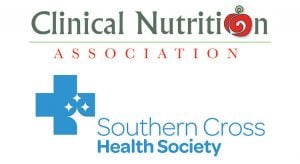The Connection Between Blood Sugar Balance & Autoimmunity

The link between blood sugar balance and autoimmunity is complex and multifaceted. Autoimmunity refers to a condition where the immune system mistakenly attacks and damages the body’s own tissues, leading to various autoimmune diseases. Blood sugar balance, on the other hand, refers to the body’s ability to regulate the levels of glucose (sugar) in the blood.
How we can help get your body back into alignment is with nutrition and lifestyle changes. When you’re spiking your blood sugar and it has these crazy high spikes which are followed by really big lows it’s really stressful on your body. This creates a lot of inflammation which then creates a lot of free radicals, that’s a big stressor on the body. The heart of any autoimmune condition is stress and inflammation.
Inflammation also comes from stress. Stress from eating a lot of highly refined foods that don’t give you a lot of nutrients can be a lot of stress on your body, but also eating too low carbohydrates can be stressful for some people. When you’re not eating carbs your body needs to produce cortisol in order to go through a process called gluconeogenesis. Which means creating glucose from either stored forms of glucose or from fat. So, when your body needs to do this your cortisol needs to be high and if you are continually doing this and your cortisol is always at high levels, this will really stress your body and slow down or prevent your body from healing.
When it comes to carbs it’s getting the balance right, not eating too many to spike blood sugar but not eating too low to stress your body. Carbohydrate intake is very individualized and multifactorial. When eating carbs you want to choose whole food rich carbs that are wrapped up in fibre and provide you with vitamins and minerals as well, and balance them with protein, fats and fibre-rich vegetables.
Focusing on healing the gut is also very important when it comes to autoimmunity as many studies have shown microbiota is closely related to autoimmune diseases. But eating a blood sugar diet can be supportive of that because when eating a blood sugar rich diet you are eating lots of fibre-rich vegetables.
Blood sugar imbalances from eating highly refind foods can disrupt the gut microbiome, the collection of beneficial bacteria in our digestive tract. An unhealthy gut microbiome is associated with various autoimmune diseases. Refined foods can feed the “bad” gut bacteria in your gut which can create overgrowth or gut dysbiosis, and some of the “bad” species in the gut can create leaky gut. When the gut is leaky and you eat food, that food can leak through the gut, into the bloodstream, your body then creates an immune response to these foods.
Another factor which contributes to the connection between blood sugar balance and autoimmunity is insulin resistance. Long-term high blood sugar levels can lead to insulin resistance, a condition where cells become less responsive to insulin. Insulin resistance has been linked to systemic inflammation, which may contribute to autoimmune reactions.
Many people can improve their symptoms or decrease their reliance on medication when supporting their blood sugar and supporting gut health when it comes to autoimmune conditions. Overall, you want to do your best to reduce inflammation and stress on your body. This comes down to looking at your plate and eating balanced blood sugar supportive meals that are also gut healing, and not spiking blood sugar too high but fueling your body well through wholefoods.
While there is a clear association between blood sugar balance and autoimmunity, it’s important to note that not everyone with blood sugar imbalances will develop an autoimmune disease. Additionally, autoimmune diseases are influenced by a combination of genetic, environmental, and lifestyle factors. Maintaining stable blood sugar levels through a balanced diet, regular exercise and stress management, may help reduce the risk of developing or managing autoimmune conditions.
If you have concerns about autoimmunity or blood sugar balance, reach out to qualified health care practitioner like myself or someone else for personalized professional advice and management.

Let's connect @nataliebradynutrition
The information on this website is not intended to replace the advice of your GP, a one on one relationship with a qualified health care professional and is not intended as medical advice. It is not intended for self-diagnosis, treat, cure, or prevent any disease. I encourage you to make your own health care decisions based upon research and in partnership with a qualified healthcare professional. The entire content of this website is based on the opinions of Natalie Brady, a qualified Holistic Nutritionist, unless otherwise noted. Click here for term and conditions of services.
Copyright © Natalie Brady Nutrition 2022 | Natalie Brady Nutrition Listed in Auckland's Top Nutritionists | Website by Fuel Media



